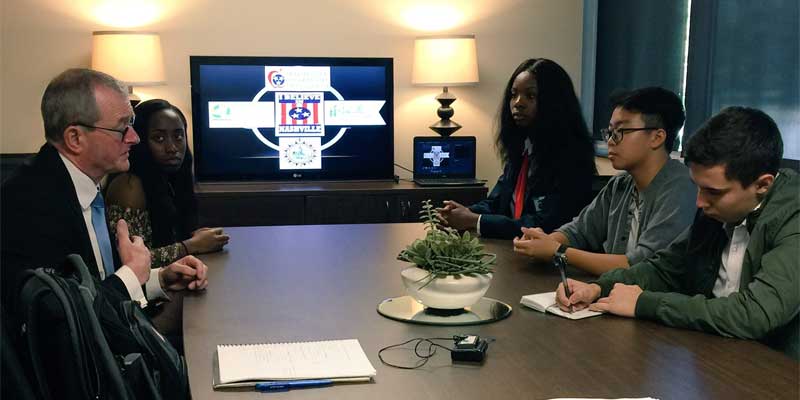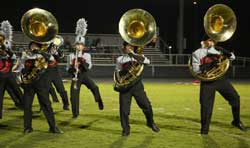Our Group Chief Executive Simon Lebus saw what a Cambridge curriculum looks like in North Carolina, before experiencing the brass-toned sounds of one Nashville high school's musical emphasis.
The education system in the US is highly localised, reflecting a long-established tradition of suspicion of central government interference in arrangements for schooling. This makes it complicated to work with schools there as arrangements can vary enormously, not just from state to state but also from county to county and district to district. I was therefore keen to have an opportunity to visit some of our American schools and get a better understanding of their experience using a Cambridge curriculum and how it was helping them achieve improved educational outcomes.
During my short (4 day) trip I visited North Carolina and Tennessee and was able to get first-hand accounts of what it is like to learn and teach in two very different schools.
In North Carolina, I visited the North Learning Community (NLC) of Charlotte-Mecklenburg Schools District (CMS) , where I met Matt Hayes, who is Community Superintendent of NLC. Matt Hayes spearheaded the implementation of Cambridge Assessment International Education curricula. The NLC was, in fact, the first district to adopt Cambridge International in North Carolina, where it was seen as providing a solid platform for developing study skills and building a knowledge base that would equip students to succeed when making the transition to High School study.
Crucial to the adoption was the recent decision by North Carolina to grant parity for Cambridge International examinations, meaning the state now pays for all AS and A Level exams along with IB and AP exams (offered by other education bodies), easing the financial burden for families. Our ambition is to persuade other states to follow suit, thus widening the choice of assessment for lower-income students.
After visiting the Charlotte –Mecklenburg NLC, I travelled onto Tennessee, accompanied by Mark Cavone and Keith Lucey, who are both based in our New York office. The Tennessee Department of Education now has a major push on improving education standards, and as part of this has been actively promoting their Early Post-Secondary Opportunities (EPSO) programme, the goal of which is to allow all schools and students to have the opportunity to enrol in post-secondary courses and to be prepared for college and the working world.

Cambridge programmes have been recognised as being suitable for inclusion in the EPSO programme, and we were able to visit Overton High School, a large Nashville campus with 2,100 students of a highly diverse demographic. They had fairly recently adopted Cambridge programmes and both teachers and students reported it as a positive experience. The teachers in particular enjoyed the higher level of discretion they had in choosing how to teach the syllabus and the students felt that it had improved their thinking skills and overall self-confidence. I was lucky enough to sit with a group of eight of the students
(I'm pictured above with a few of them) who told me a bit about their life stories and their ambitions, which in the case of six of them included wanting to go into medicine. The school was at the tail end of a large scale refurbishment exercise but was clearly doing a fantastic job under its inspirational Head, Dr Jill Pittman, of transforming these students’ life chances and it was gratifying that the deployment of the Cambridge programme was a central element of this.

Of course, being based in Nashville, there was a heavy emphasis on music and many of the career-based courses were designed to help students prepare for careers as performers, events marketers or technicians. As a result, the school had invested heavily in music teaching and performing and we were able to watch the school brass band
(pictured at the top of the page ready for their latest homecoming game appearance, and some exuberant sousaphone players pictured right) being put through its paces – a mighty sound, a great reflection of some of the values of teamwork, collaboration and self-discipline that the school prides itself on instilling in its students and an inspiring end to a very impressive visit.
Simon Lebus
Group Chief Executive, Cambridge Assessment